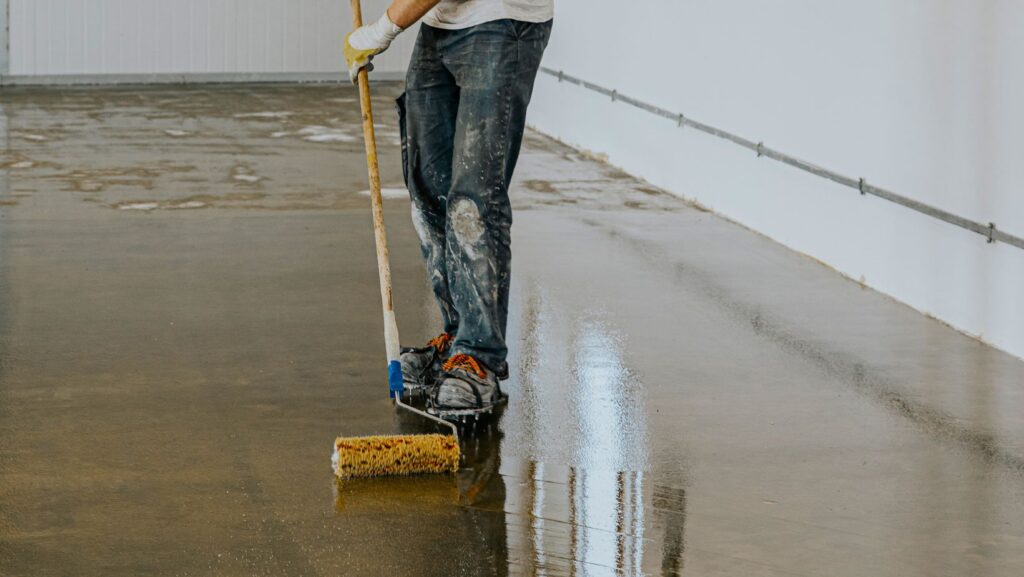In today’s business world, flooring hasn’t been “just part of the interior” for a long time. It must withstand heavy loads, support the safety of employees and customers, and keep an attractive appearance even after years of intensive use. That’s why more and more companies that truly value cost-efficiency choose options that combine strength, durability, and a modern look. We’re talking about epoxy flooring.
What Is an Epoxy Floor?
Epoxy flooring is made from a special resin that hardens after application to create a continuous, monolithic layer. This layer is highly resistant to mechanical damage, chemicals, and abrasion. As a result, the surface looks appealing, is very practical, and is ideal for commercial spaces.
What Are the Main Benefits for Business?
Before investing in a renovation or fit-out, experienced business owners look for solutions that will last as long as possible. Epoxy floors offer several key advantages that make them optimal across many industries. The benefits can be summarized as follows:

- Durability. The coating withstands intensive use and keeps its integrity for years.
- Resistance to chemicals and moisture. Suitable for warehouses, labs, and kitchens where other materials degrade quickly.
- Easy maintenance. The smooth surface is easy to clean and doesn’t require complex upkeep.
- Seamless surface. No joints means no dirt or bacteria buildup—crucial for food and medical environments.
- Attractive appearance. You can choose any color or decorative effect to reinforce your brand image.
This list shows how epoxy flooring can solve many tough tasks at once—protecting the space and creating a positive impression on visitors. After installation, a modern business gets a solid investment that will pay off 100% by reducing repair and maintenance costs.
Where Is Epoxy Flooring Used?
Another major advantage is versatility. The installation technology suits a wide range of applications, which is why it’s used by both large corporations and small businesses. The most common examples include:
- warehouses and logistics centers,
- retail spaces and showrooms,
- restaurants, cafés, and food production,
- medical facilities and laboratories,
- offices and creative spaces,
- auto service centers, garages, and parking areas.
Each of these sectors has specific flooring requirements, yet epoxy coatings meet them all successfully.
Installation Technology: What Should a Business Know?
Did you know epoxy flooring is installed in several stages—and the company Speedway strictly follows this plan? First, technicians carefully prepare the substrate: cleaning, grinding, and leveling. Next, they apply a primer to ensure strong adhesion. Then, layers of epoxy resin are poured; it polymerizes and becomes an ultra-strong monolithic surface.
If desired, you can add decorative elements—quartz sand or even 3D graphics—to make the finish unique and showcase the owner’s taste.
Proper installation directly affects longevity. That’s why we recommend working only with professional contractors experienced with this material—this is the only way to be confident your investment will succeed.
What Are the Financial Advantages?
Beyond the obvious benefits, epoxy flooring helps reduce costs over the long term. How exactly? Here’s a short list:
- floor repairs are needed far less often than with tile or plain concrete,
- the need for expensive cleaning products drops,
- business downtime due to floor damage is minimized.
In this way, the initial investment pays back quickly thanks to lower maintenance costs. And that’s exactly what you’re aiming for when choosing flooring for your premises, isn’t it?



